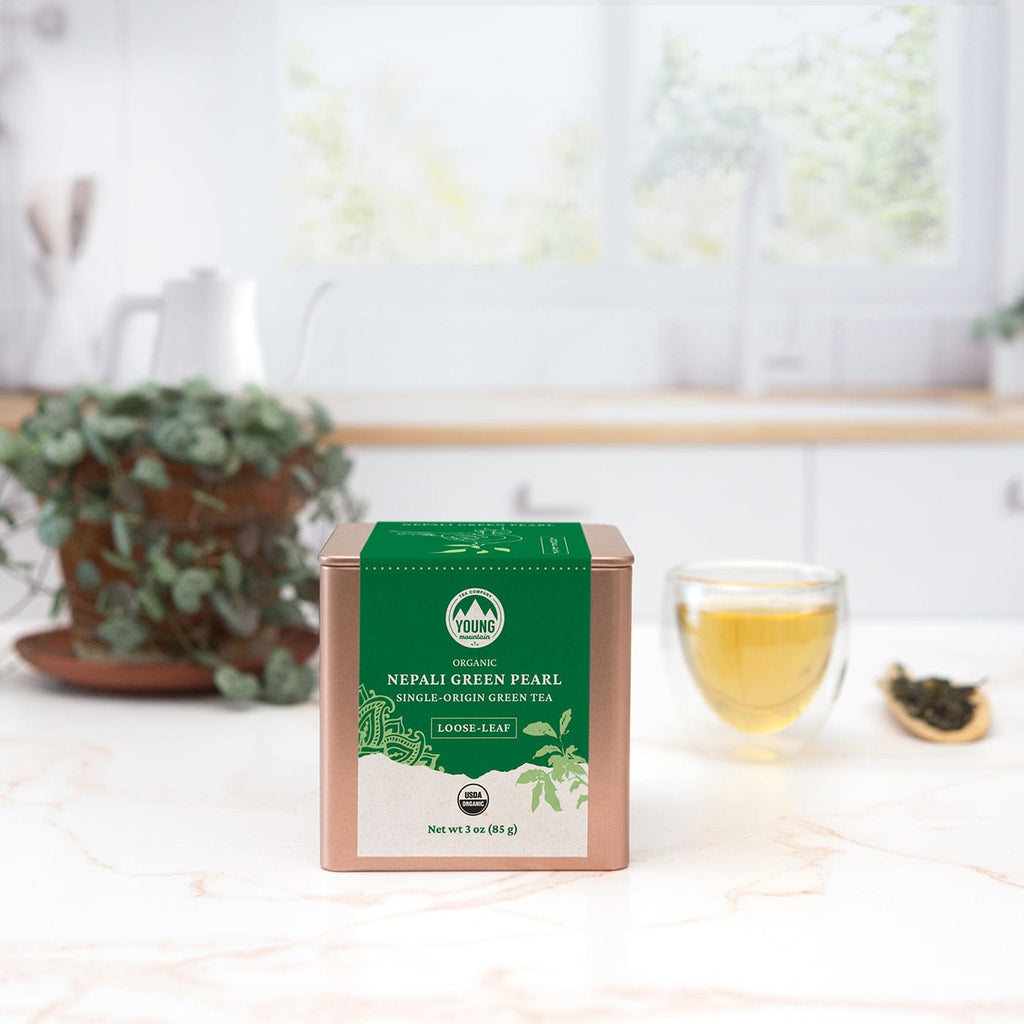
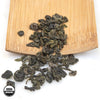
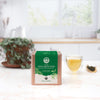
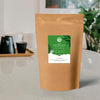
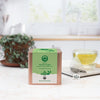
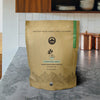
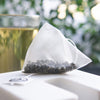
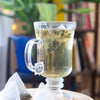
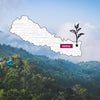
$19.99
Taste: Smoked artichoke & Meyer lemon
Origin: Ilam District, Eastern Nepali Himalayas
Tea Maker: Tinjure Cooperative
Infusion Suggestions:
Steep 1 1 tsp / 2.5 g | 8 oz | 180° F | 2 min
Steep 2 8 oz | 190° F | 3 min
Certifications: USDA Organic, Rainforest Alliance Certified
Contains Caffeine
Nepali Green Pearl is a fresh, strong organic green tea rolled into tight pearls. The tea makers at the Tinjure Cooperative carefully shape the leaf using heated pans, coaxing out a wide range of aromas and flavors that are best explored by steeping the same leaves at least twice.
Tasting Notes: On the first steep, this beautiful green tea jumps out of the cup with a citrus bouquet. As it relaxes in the second steep, its tightly wound pearls fully unfurl with a magnitude of savory flavors, ranging from briny seaweed to comforting smoked artichoke. To release this tea’s full vegetal strength without being overwhelmed by its astringency, it’s best to begin with a light, short steep that sets up your cup for the longer, hotter second and third steeps. Lovers of Japanese sencha and matcha green tea are likely to enjoy this tea.
Production: After harvest, tea makers begin processing Nepali Green Pearl by hitting the harvested green leaf with a dry heat. The hot air vapor sucks out moisture and brings out the leaf’s cooked, smoky notes. This step also deactivates the enzyme that would otherwise trigger the oxidization process and make this a black tea instead of a green. After a short rolling to coat the tea in its own essential oils, the leaves are tossed into the air using heated metal pans. This process gives the tea its pearled shape--the leaves first shrink and curl when in contact with the hot metal, and then briefly expand when exposed to the cool air. After three hours of cycling between heating and cooling, the tea emerges as tight balls packed with flavors ready to explode into the cup. The final step is to finish the tea, which is done with a round of direct, dry heat.
Region: Nepal’s best-known tea growing regions are in the far eastern part of the country, bordering India and in the shadows of Mt. Everest. While tea has long been part of eastern Nepal’s past, it lacked the market access to establish its own identity. As a result, most Nepali tea has historically been sold as knock-off Darjeeling, given the two region’s nearly identical soils. The birth of an independent Nepali tea industry is being led by small-scale farmers whose families have moved fluidly throughout the region, long before Nepal and India were separate countries. As generations of community members traveled between eastern Nepal and northeastern India, many of Darjeeling’s Camellia sinensis saplings and secrets came with them. The emerging region is blending expertise with invention, and, in the process, paving a new model for tea in South Asia. Read our blog about this region here.
Tea Makers: In the early 1990s, three villages on three hillsides banded together and began growing tea. They named themselves Tinjure in homage to their geography -- Tin (“teen”) means three, and jure (“joo-ray”) means hills. The new Tinjure Cooperative sold its harvested green leaf to nearby established gardens, including Kanchenjunga Tea Estate, whose teas we also carry. In 2013, the Tinjure Cooperative raised funds to establish their own processing facility to craft their own tea from the green leaf they harvest. Today, the Tinjure Cooperative is 240 members strong.
Impact: The Tinjure Cooperative is Nepal’s first cooperatively owned and operated factory. By processing their own teas, farmers at Tinjure earn 20 times more than they did when selling the same green leaf to privately run factories. Tinjure’s board of directors, comprised of both women and men, is actively organizing and guiding other communities. Helping transform Nepali tea farmers into the more profitable part of the business--tea makers.
Packaging: Our commitment to sustainability means we offer our teas in several types of packaging:
